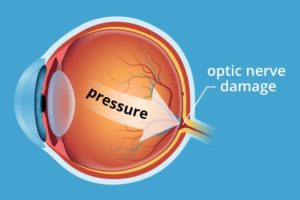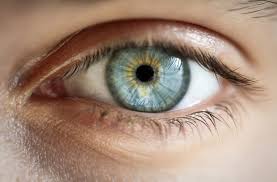
Glaucoma refers to one of several eye conditions that damage the optic nerve and ultimately cause blindness. Fortunately, glaucoma can be treated and the remaining vision can be salvaged if it is caught early on. At Louisiana Eye & Laser, we have treated countless glaucoma patients throughout the years. While we are able to provide the best glaucoma treatments available today, regular eye exams are a vital part of catching glaucoma in the early stages. To schedule an eye exam, you can call, fill out an online appointment request or stop by one of our 14 Louisiana offices. Read on below for more information and answers to common patient questions about glaucoma.

The majority of the content below has been provided by Dr. Eric R. Reish, ophthalmologist, and is medically reviewed for accuracy. Some links have been added to audio transcripts to provide access to relevant resources or information.
Table of Contents:
- What causes glaucoma?
- What are the risk factors for glaucoma?
- What are the symptoms of glaucoma?
- How is glaucoma diagnosed?
- What is the treatment for glaucoma?
- Different Types of Glaucoma
- Can glaucoma be permanently cured?
- How can you prevent glaucoma?
- What are the different types of treatment for glaucoma?

What causes glaucoma?
Answer provided by Dr. Eric R. Reish. Transcript included below.
Eric R. Reish, MD:
Glaucoma is a chronic condition. Usually it’s a condition that’s inherited in the family. That’s the most common cause. There are other secondary causes such as chronic inflammation in the eye, prior injury to the eye, anything that would impede the drainage of fluid within the eye, as well as affects the production of fluid.
What are the risk factors for glaucoma?
Answer provided by Dr. Eric R. Reish. Transcript included below.
Eric R. Reish, MD:
The main risk factor is just family genetics. There are other risk factors such as being African American, being elderly. There are certain risk factors for a specific type of glaucoma call angle-closure glaucoma. Those are the main risk factors for glaucoma. But the main thing is inheritance and genetics.

What are the symptoms of glaucoma?
Answer provided by Dr. Eric R. Reish. Transcript included below.
Eric R. Reish, MD:
Glaucoma’s a condition that can be very dangerous in that a lot of times you don’t notice the symptoms. As glaucoma progresses, the main symptoms can be loss of peripheral vision, but these will happen far before you’re able to get them detected. Now, this is for open angle glaucoma, symptoms are very subtle and they happen slowly over time. For another type of glaucoma, that’s a rare type, angle-closure glaucoma, that can have symptoms of pain, decreased vision, red eye, halos around lights. But again, that’s a rare type of glaucoma. The most common type of glaucoma, open angle glaucoma, again, you won’t notice the symptoms until the disease is progressed significantly.
How is glaucoma diagnosed?
Answer provided by Dr. Eric R. Reish. Transcript included below.
Eric R. Reish, MD:
Glaucoma is diagnosed through an eye exam through a trained ophthalmologist or optometrist. There are several factors we look at in determining if you have glaucoma. The first thing we look at is interocular pressure in the eye. There’s a certain range of pressures that we look at. Also on the clinical eye exam, we look at the actual appearance of the optic nerve. That’s the nerve that goes from the eye to the brain. If a nerve has glaucomatous damage, it assumes a certain appearance. And we’re looking for that in our exam. Now there are other kind of higher order or higher technology tests that we use. One of them is called an OCT. And that’s the way that we can actually look at the thickness of the optic nerve. And that aids us in the diagnosis of glaucoma.
The other test that we do is a Humphrey visual field. That’s more of a subjective test that tests your peripheral vision. Those are the four main factors we look at. We also look at any inheritance patterns in the family. If you have direct family members that have the condition.
What is the treatment for glaucoma?
Answer provided by Dr. Eric R. Reish. Transcript included below.
Eric R. Reish, MD:
Once the condition is diagnosed, the whole goal of the treatment is to prevent worsening or prevent progression of glaucoma. First thing you’ll want to do is just make sure the intraocular pressure is controlled. The first way we do that is with drops. That would either aid in the drainage of fluid within the eye, or reduce the production of the fluid. Fortunately, there’s a lot of other treatments as well. And there’s many types of drops that we use. There are certain surgical methods we can use to treat the glaucoma and control the intraocular pressure.
There are certain lasers we can do to aid in the drainage of fluid. That one specifically called a selective laser trabeculoplasty or SLT for short. And there are other types of lasers we can do to reduce the production of the fluid. There are many different types of implants we can put in the eye to lower the pressure and aid in the treatment of glaucoma. There’s minimally invasive ones up to more invasive ones that would lower the pressure significantly in more of our end-stage glaucoma cases.

What Are Some of The Different Types of Glaucoma?
Answer provided by Dr. Eric R. Reish. Transcript included below.
Eric R. Reish, MD:
The main type of glaucoma is open angle glaucoma. This is the most common one we see. There is angle-closure or closed angle glaucoma, and there are also secondary types of glaucoma. These would be traumatic glaucoma, inflammatory glaucoma, pigment dispersion syndrome. These would be associated with inflammation with trauma, among other things.
Can glaucoma be permanently cured?
Answer provided by Dr. Eric R. Reish. Transcript included below.
Eric R. Reish, MD:
No, the thing was glaucoma is it cannot be permanently cured. We mainly want to stop it from progressing and stop it from worsening. Once you’ve had the damage from glaucoma with the reduced vision and the reduced peripheral vision, then that damage is there to stay. So that’s why it’s very important to treat glaucoma in its early stages, to recognize it early, and to be aggressive with treatment to prevent any permanent damage from happening. So once you have the damage, it’s there to stay.

How can you prevent glaucoma?
Answer provided by Dr. Eric R. Reish. Transcript included below.
Eric R. Reish, MD:
The main thing to prevent glaucoma is again, to go to your regular eye visits. And especially if you have family inheritance, it’s very important to have had that evaluation done early in life so that we can catch the disease before it progresses. Now for certain subtypes of glaucoma, such as the angle-closure glaucoma, there are some things you can do. There are certain medicines that you need to avoid. Antihistamine being one of them. There are several other medicines that can make angle-closure glaucoma more likely, but for a large majority of our glaucoma cases, the open-angle glaucoma, it mainly is early recognition. So it would be establishing visits with your primary ophthalmologist or optometrist and going to the regular visits and having all the studies done to follow this condition.
What are the different options for glaucoma treatment?
Answer provided by Dr. Eric R. Reish. Transcript included below.
Eric R. Reish, MD:
For some of the surgical methods, which would be applied to moderate to severe open angle glaucoma, there are a set of treatments called minimally invasive glaucoma implants. And this is a procedure that we would do sometimes by itself in the operating room, or we would combine it with cataract surgery in the operating room. The main implants that we use are the istent. That’s I-S-T-E-N-T. There’s also an implant called the Hydrus. H-Y-D-R-U-S. These implants are usually done in conjunction with cataract surgery and they can give you sometimes a 20 to 25% reduction in interocular pressure. There’s an implant called XEN, X-E-N. That would give us a little bit more reduction.
And there is a surgery procedure called the trabeculectomy. I’m sure you’ll have to look that one up for the spelling. We use an implant called the express mini shunt for our trabeculectomy, and that would be used for end-stage severe glaucoma. There’s also, here at Louisiana Eye & Laser Center, we are involved in some clinical research studies involving some new types of implants. So these would be implants that would not be offered anywhere in the world, but here and several other sites where we’re on the cutting edge of these types of therapies.

Glaucoma treatment at Louisiana Eye & Laser
Glaucoma is one of the leading causes of blindness, which is why regular eye exams are extremely important for catching it in the early stages. If it’s time for you to have an eye exam, don’t wait – schedule an appointment with our highly trained eye care professionals today. If you have already been diagnosed with glaucoma and need treatment, our doctors are here to help. Give us a call and don’t let glaucoma stop you from leading a full life with the clear vision you deserve.




